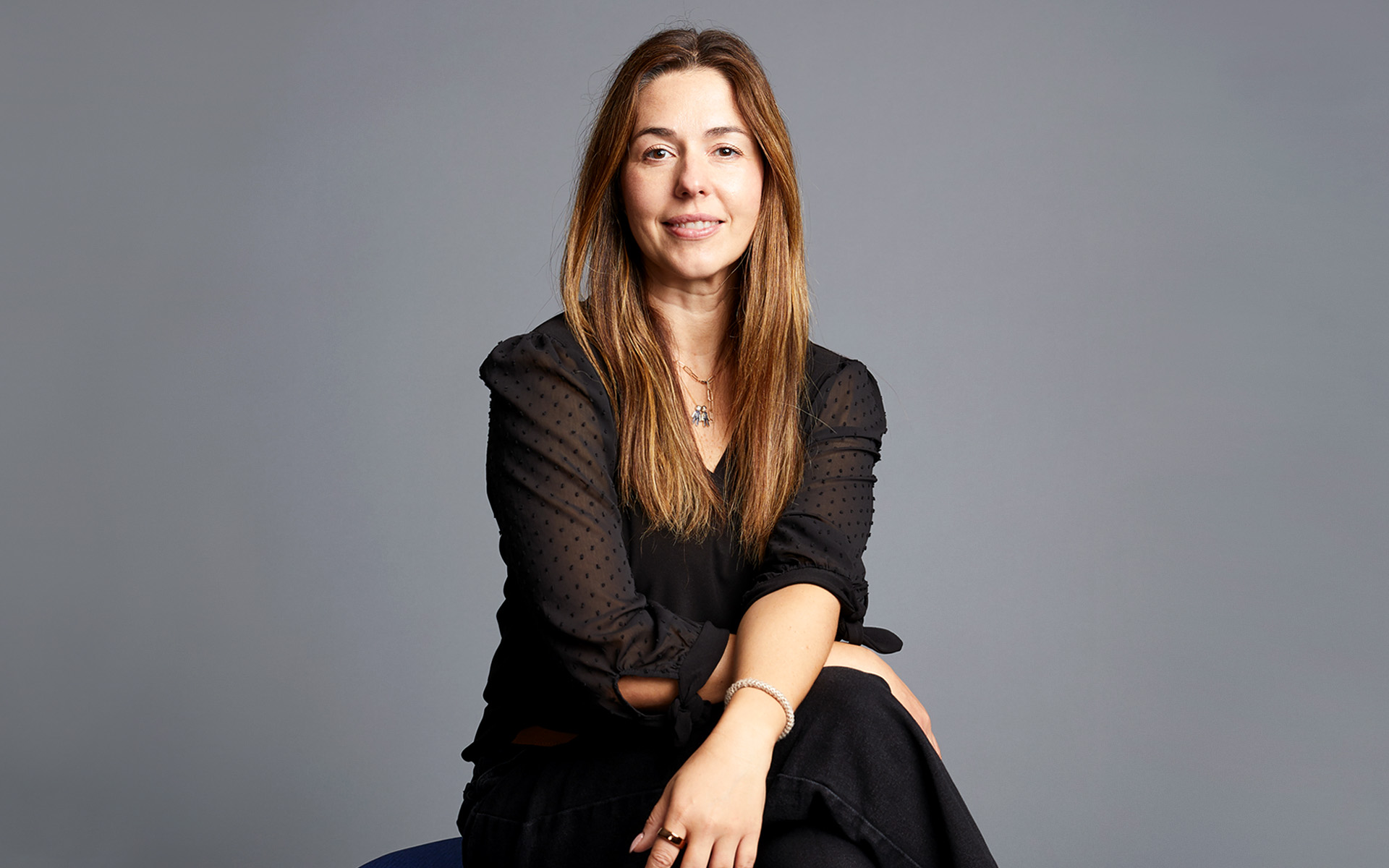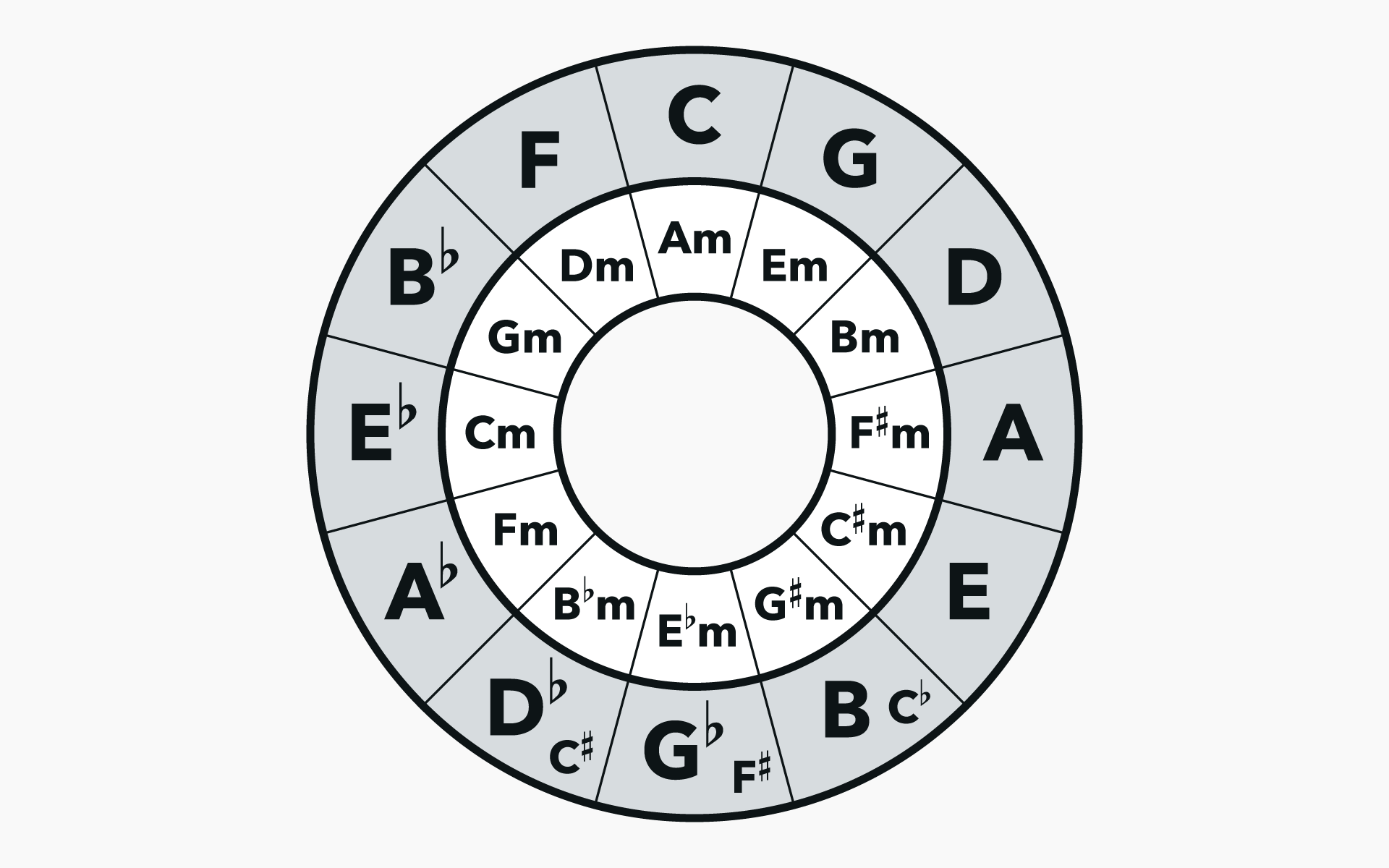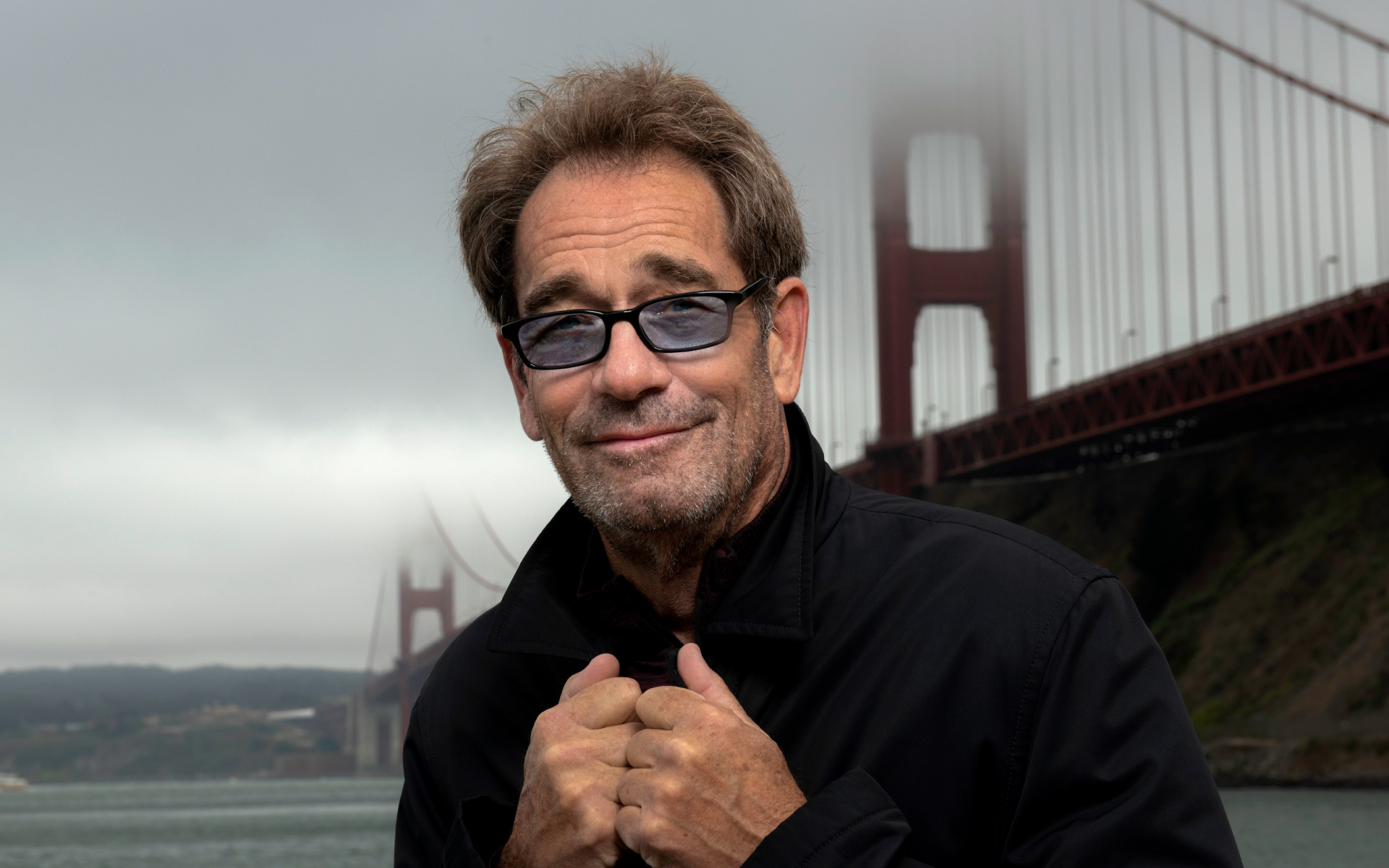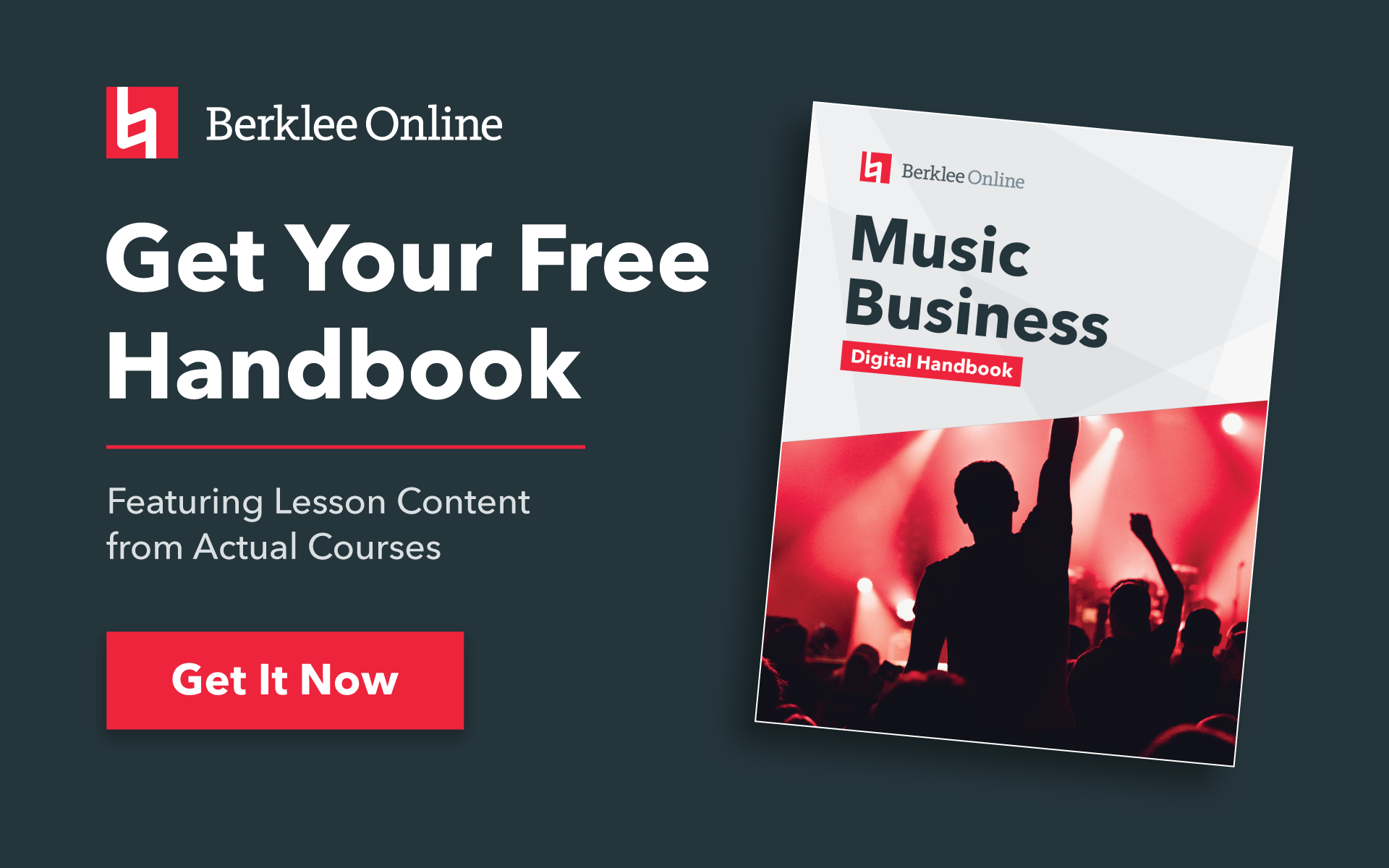Music is My Life: Episode 044
Janet Billig Rich on Management (Nirvana, Hole) and Music Supervision (‘Rock of Ages,’ ‘Moulin Rouge’), and More
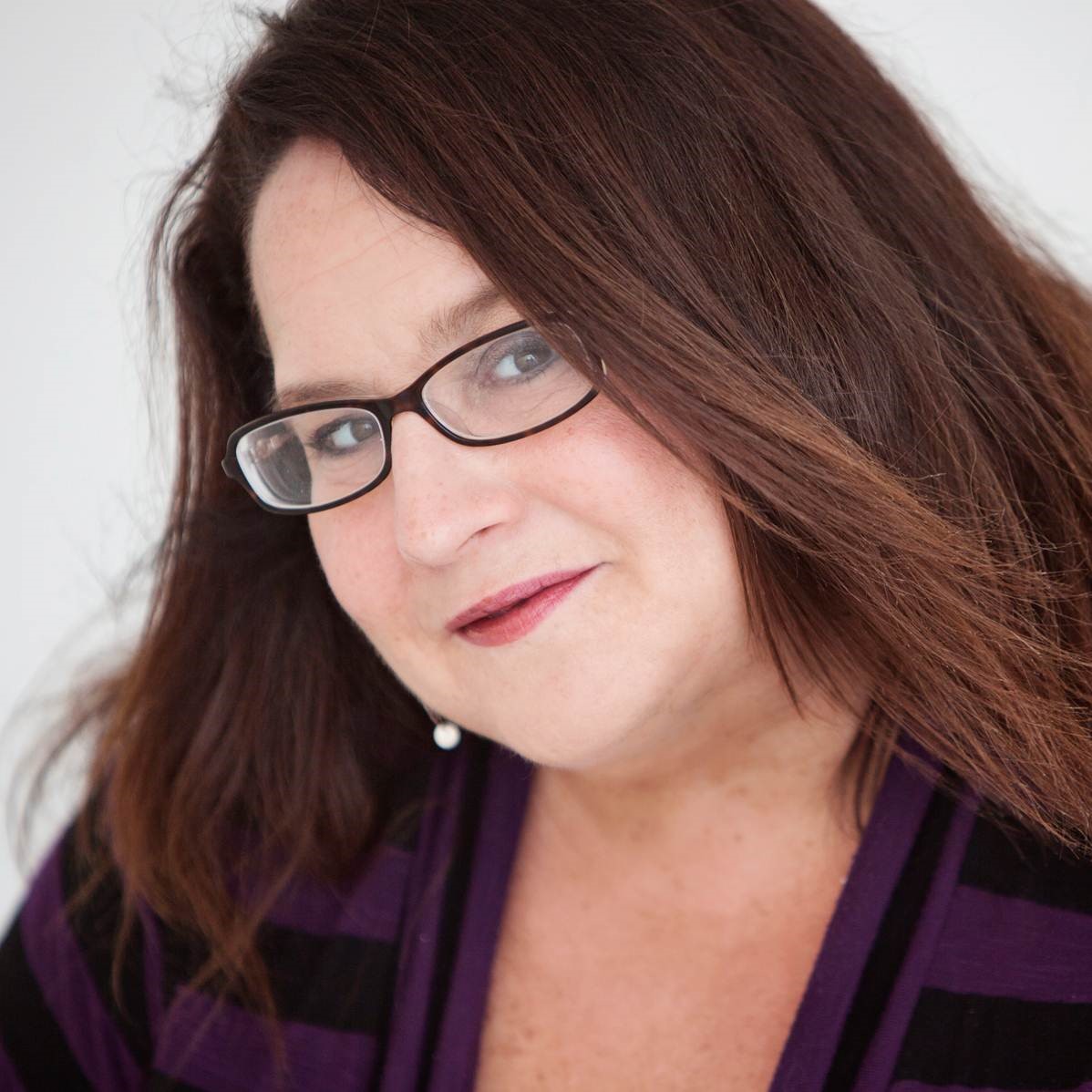
Janet Billig Rich became interested in music when she first saw the Replacements. After taking in about 100 shows she went on to sell merch at indie rock shows, intern at Caroline Records, and then move on up to manage acts like Nirvana, Hole, and Dinosaur Jr.
She discusses her varied career in the music industry, and talks about why her appearance on the cover of the New York Post (below) led her to switch from management to a career as a music supervisor, clearing rights for Broadway shows like Rock of Ages, as well as for movies and TV shows.
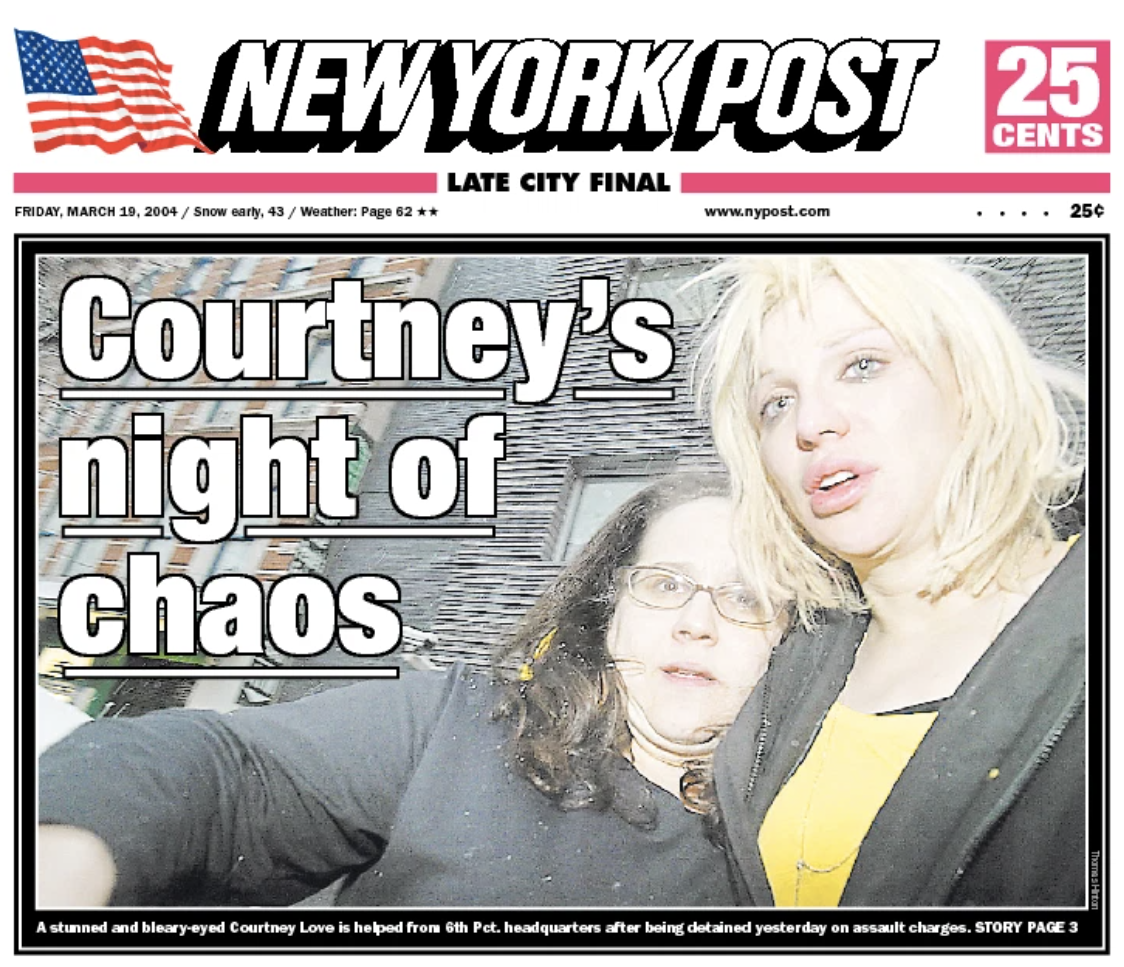
Janet Billig Rich: I have two older sisters who influenced my musical tastes in a way where I just didn’t want to like what they liked and they were really into prog rock, Jethro Tull, Yes, Hot Tuna, and I saw all those bands play live by the time I was 12. So my sisters will have to drag me along to concerts. I loved “Nadia’s Theme” because it was from the Olympics and the Olympics were a big deal. Then, I remember getting into Billy Joel, he was from Long Island, I grew up on Long Island. So that made a big impact. Then when I was little, I still liked Shaun Cassidy and things that got fed to you. For me music discovery came when I was in my late teens and I discovered the Replacements in the mid ‘80’s and lost my mind. That was it for me. Three chord guitar rock became my jam.
What album was that around?
It was the cassette tape, Sorry Ma, Forgot to Take Out the Trash. Then honestly, Let It Be to me is like the Beatles. I love the Beatles. I’m not saying that the Beatles aren’t important in the pantheon of music, they’re the most important as are the Rolling Stones and all that, but to me personally, the Replacements were the game-changer.
Yeah. It’s funny there might be some people who listen to this podcast and don’t get, “Well, Let It Be was the Beatles, Janet.”
[LAUGHTER] They need to do their homework.
I remember hearing that they were going to name the next one, which ended up being Tim, Let It Bleed, which would be awesome.
So brilliant.
What is your favorite Mats song?
Oh, my god, that’s such a hard question. Okay. So I would say generally, I love “Androgynous.” I think “Unsatisfied” is probably my favorite, favorite, favorite song. I think it’s just the most heartbreaking, like tear your guts out. But then I love “More Cigarettes.” Things I’d quote all the time. I don’t know, what’s your favorite Mats song?
Probably either “Can’t Hardly Wait” or “Nowhere is My Home.”
I love “Can’t Hardly Wait” live.
That Live Maxwell’s album that came out a few years ago was just so good.
Yes. Agree. The horns bother me on the “Can’t Hardly Wait” record.
Yeah. It’s too sterile.
Yeah. Exactly. There was something about it, but those songs live and “Can’t Hardly Wait,” slayed me live.
So you went on the road and followed them basically, right?
I did. Yeah. I didn’t even know there was a music business. Just didn’t even occur to me. I grew up, my mom was a social worker and my dad was a teacher. I never knew anybody in entertainment. I had no idea there was a music business. I was in it and making money and earning money before I even knew it existed. So I really grew up in a vacuum. When I went and followed the Replacements, I just wanted to see every live show I could. I learned about them through their music and album releases. There was no Google or anything. Trying to figure out even when concerts were, it was a whole chore, you have to be a real detective. For me I found that when they played New York and they’ll be like, “Oh, they’re playing Philly and Boston and Washington DC, let’s go there.” That became the most important thing above school. Then working.
Did you have some cohorts with you or were you on solo missions?
Oh, no. Always had my possy, I definitely had a gang going to shows and traveled the country.
Now, the whole time you’re becoming a ravenous fan, does it ever occur to you, “Hey, maybe there’s something in it for me here,” whether it be the management side or even did it occur to you to pick up an instrument and try that out?
No. Neither those things ever occurred to me at all. It just didn’t even occur to me that there would be a job. I’d never even met the Replacements.
Throughout all the times?
Yeah. I never met them. I knew their crew. I knew the tour manager and a couple of the guitar techs. They didn’t seem to be like real people that you’d hang out with. It was never some, “Oh, I want to hang out with them.” It was just like, “I love their music, and I love seeing them play.” Knowing their crew, they’d always get us into the shows for free or help us with where to go next as far as a map or an itinerary. There were literally no cell phones or Google. I think that’s what made me a good manager. So it’s really yes, crafty.
Was your first foray into the business when you started working merch tables for bands?
Yeah. I think that was like, “Oh, I could do this.” Selling t-shirts and that was a good thing. I think my first real job was interning, actually an internship at Caroline Records, which at the time was like a distribution company and a small record label. I worked on the record label side and I interned for them and then had a job with them within probably a month. I ended up working there for a few years. I worked in really like publicity and marketing and I learned a lot about that.
That was awesome. I learned so much. I loved all the bands on the label. It was definitely my taste in music. Then I even got the opportunity to sign some of bands, which was super cool and that is how I ended up becoming a manager because I had to sign Hole, Courtney Love’s band, and they were looking for a manager and Danny Goldberg and John Silva called me and they were like, “Why don’t you just be the manager?” Then they were like, “You could come into our company,” which was Gold Mountain at the time. “You can manage Hole and whoever else.” That was my first real management job.
You’ve gone way too fast though, because I want to dwell on more details. I want to know how many Replacements shows we’re talking about.
I know, I saw them a lot.
At least a 100 times are we talking?
I think over 100. There’s a very cool documentary about the Replacements that didn’t include the Replacements. I wish I could remember what it was called.
I remember. Was it Color Me Impressed, right?
Color Me Impressed. Yeah, exactly. The guys who made it were great. I ended up talking to them in that documentary. I saw a lot of shows. I remember trying to figure out how many shows I saw over which tours. There were several different tours.
The merch selling though, tell me how you made that transition. I mean, was it a matter of wanting to break into the business or was it a matter of . . .
No. It was just like, I was there and can you do this?
From all your years, what is the piece of ephemera that you’re most excited and proud of? Not even Replacements, just in general.
Well, I have to say there’s a Replacements foam finger that is in my office staring at me right now. So of course I have to say that.
Okay. So you’re doing the merchandise, but that was not a career path?
No. Then I was gone. Yeah. Then I was going to college. I was at NYU.
When you got the job at Caroline, I’m guessing that’s ’88, ’89 or . . . ?
Yeah. Because Pussy Galore, White Zombie, Naked Raygun, which was like a hugely popular band from Chicago. Then we had this New York hardcore thing going on like Warzone and Youth of Today. There were those bands and then we signed Primus, which was a strange game changer, because they were super popular. Then Smashing Pumpkins, they were signed to Virgin, but Caroline was like a subsidiary of Virgin owned by the same parent company.
So they were like, “Oh, why don’t you put out this Smashing Pumpkins album and we all loved it.” I’m still a massive Smashing Pumpkins fan. I think Billy Corgan is a real treasure. Which he’ll tell you also. I really do think he is a national treasure. But I got to work with them in the earliest days, which is so cool. I still have really fond memories of working with them on the Lull EP and the first album, right? It was Gish? Gish and Lull were the two albums. Yeah. So that was a wild roller coaster ride.
It’s interesting you mentioned that they were a subsidiary and I remember being a kid at that time and reading the music press about the whole subsidiary deal and a lot of people, they were suspicious of it like, “Oh they weren’t really on an indie.”
Yeah, it was really bizarre. Caroline really operated separately. Again, I wasn’t high up on the totem pole, I was a publicist. I got to sign some bands doing A&R, but I wasn’t running the place. So I never dealt with anyone from Virgin. It wasn’t like on my paycheck and it wasn’t like, “You’re in a meeting with Virgin Records.” I didn’t even know anybody at Virgin. Keith Wood ran the company. He was incredible and gave me so many amazing opportunities to sign bands. I was 20 years old. He let me do all this cool stuff. But he was the one that dealt with Virgin and I have no idea. It was as indie as indie got, meaning our budgets were small. We made records for $12,000 and marketed them and did publicity for them in-house. The record label, I think there were four or five people, it wasn’t like some giant staff.
There were no boardroom meetings where they’re talking about the bottom line?
[LAUGHTER] That would have been way above my pay grade, but it never trickled down to me. Yeah, Mark Williams signed them. I know at some point people would give me credit for signing them. I’ve read that and that’s absolutely not the case. I worked with them very early on doing publicity and I was a massive fan, but Mark Williams signed them and should get all the credit because he saw a lot early.
Now, you talk about being a massive fan, how important is it for you to love the music of the people you’re working with?
Honestly, it’s hugely important. When I was managing a lot of successful artists, you’d get pushed from lawyers who you worked with or record companies like, “Manage this band. Can you get involved?” People would offer to pay you to manage a band, who would offer you a monthly fee. Honestly, I can’t even make a phone call on behalf of someone I’m not psyched about. I just can’t do it.
So you’re at Caroline and you sign Hole, how did that whole thing happen? No pun intended.
The way I remember it, again, everyone’s memories are different, but I remember we were about to sign Henry Rollins, which I was driving and I was super excited. I was a massive Black Flag fan. At the last minute, he bailed and signed to a major. You mentioned there was this indie versus major culture war. So this was at the height of that. All these punk rock, and I think it started with Sonic Youth, signing to Geffen, so Henry Rollins bailed last minute on signing to Caroline and signed to a major. I was devastated. As I came into work I was shell-shocked every single day.
I also had this apartment on 7th Street and Avenue C, and whenever bands came to town that I knew they’d stay with me because who could afford a hotel in New York City? I was friends with Babes in Toyland because having seen the Replacements a lot and following a lot of Minneapolis bands. Because of that and having been to Minneapolis, I had met a bunch of bands in Minneapolis. I had met Babes and Toyland and they were on tour and they came and stayed at my apartment. This was before cell phones. People would give out my apartment number, that’s where they’re going to be for a few days when they’re in New York. One night I was delayed at home and Courtney Love called looking for Kat Bjelland from Babes in Toyland, Kat wasn’t there.
Courtney and I ended up talking to each other on the phone. Courtney was like, “You work at a record label. Let me play you some of my music over the phone,” which she did. They had just put out their first seven-inch with Sympathy for the Record Industry, and I just thought she was amazing and I was so taken with her as a person on the phone. She had such clarity around what she wanted and she had vision about artwork and what she wanted the album to sound like and songs and she just be on the phone for hours, and just with this audition she was so clear about what she wanted and the path to it. I found her fascinating, beyond.
At the same time that Courtney was calling my apartment, we were becoming phone buddies, the Henry Rollins thing went down. Then we had a hugely successful album with Primus and then they were going to go sign to Interscope and not deliver the second album to us. I was really broken. I couldn’t believe it. Keith Wood, my boss at Caroline said, “What are we going to do? You got to get out of your funk, you’re so down.”
I was down about Henry Rollins. I was down about Primus, and I said, “Well, there’s this band in California, I think we should sign them. If we sign them that would totally take me out of my funk, we can make an album with them.” Kim Gordon should be the producer and we had just made an album with Don Fleming from this band Gumball. So I was like, Kim and Don could work together. They could produce this album for this band in California called Hole. It’s a no-brainer and that would get me out of my funk. It was like done and done, let’s sign them.
During this time, did you know you were fully invested? A lot of people in their first jobs out of college are definitely not fully invested in them, but it’s also not necessarily their dream job that they have. But at this time, did you say, “Hell, yeah, this is my career. I’m going to be in it for the long haul,” or how were you envisioning this?
I still at that point had no idea about a career or anything. I’ve just always followed my instinct. I didn’t even know about What Color is Your Parachute? I had no idea. College to me was like, I should go to college. My parents who are educators were always very much like, “We insist you get a high school diploma. What you do after that is up to you.” Both my sisters have advanced degrees, both my parents had advanced degrees. I was just like, “Yeah, I’ll go to college.” I didn’t really have any direction.
I graduated high school a year early because I wasn’t into it and I wanted to go see the Replacements play. But I didn’t drop out of high school. I knew a high school diploma was important. I just went extra one summer, and then graduated early which was an awesome decision for me. But I guess after that, when I was at Caroline, I just really enjoyed what I was doing and looked forward to going everyday. I’d go out every night to dance. I’m not necessarily married to Caroline. I was that A&R person going out and scouting music. It was just like I really enjoyed going out. New York at the time had a really vibrant music scene. We all lived in really tiny, little dumpy apartments, so it’s all three of us at home.
They were somewhat affordable at that time.
Yeah. You went just out every night seeing music. That was just my life. I wasn’t getting paid a lot at Caroline, but I got a paycheck every week and had health insurance and it was like,
this is cooking and this is good.
You’re at Caroline and you sign Hole. What’s next for you there in the chronology? Is that when you jumped to Gold Mountain?
Yeah. That was clearly Hole, that album came out Pretty on the Inside and just was on its own runway, its own trajectory, and then Nirvana was heating up. The reason I got involved with Nirvana and all the Sub Pop bands was Caroline had a distribution deal with Sub Pop. So anytime a band would be coming to play in New York for CMJ or in this seminar, Caroline would be their home base. If they had interviews to do or if someone needs to put together a guest list, that would fall to me. When Soundgarden, Live Honey, Tad, all these bands would come to New York, I was home-based and a lot of them would stay with me at my apartment.
They’d definitely be around the office at Caroline during the day. I knew Nirvana the first time they came to New York. They stayed with me. It was the early days. It was before a European tour maybe, and then they came back and stayed with me a few different times. Then I went to a few shows with them. I went with them to a Boston show, and Amherst and Hampshire College thing maybe. I can’t remember, but they were definitely a band in my life that I would become friends with. Then when Courtney was at Caroline, I think that’s when she went to Chicago when she was going to go see the Pumpkins play because they were at Caroline also, and then that’s when she met Kurt in Chicago.
Oh right.
They were dating.
The big juicy gossip in the indie circles was she and Billy Corgan were dating and then she met Kurt in Chicago, right.
Yeah. I don’t remember the details.
I know. I’m embarrassed that I do remember the details.
I remember there was the stuff in Chicago, there was the Billy-Kurt thing, that was like a thing that happened. Courtney was looking for a manager for Hole. Matter of fact, the way she got to Chicago, and I think this is part of the ancient lore, was she got a manager who was a prospective manager who she said, “Well, if you buy me this plane ticket to Chicago maybe you could be our manager.” She was real crafty. I learned a lot from her.
That was going on, Gold Mountain was managing Sonic Youth, John Silva was going to manage Nirvana, so it was like all at that same time. John Silva and Danny Goldberg were the principals of Gold Mountain at the time, called me and said, “Why don’t you just managed Courtney and Hole and you all come into Gold Mountain.” I think that was in hindsight and I think Danny’s told me since then they would just wanted Courtney to be with them and they wanted Nirvana to not be distracted. Courtney was such a big presence in their life at that time. That’s why I ended up with Gold Mountain.
With her, was there this mythos yet about her personality? When did that develop and did you think that was totally unfair?
No. Well, she came in with the myth and the legendary status because she had already been to England and she had a relationship with Julian Cope. She was in movies already, Straight to Hell and she had a scene in Sid and Nancy, and the lore was that she was going to get the role of Nancy like it was real. She already was a massive superstar and had it going on.
This whole time you’re traveling around with Nirvana and these small gigs, did you feel the spark of possibility with all the people in these circles or was it just your peers and people that were your age and shared common interests?
I think it was both. Yeah, I think it was shared common interests and I was a real fan of what they were doing.
When you are asked to manage, how did you learn the ropes of how to do that from working at a label to being the one go-to person for, or the main go-to person for performers?
That’s a great question. No one ever told me how to be a manager. There’s not a book. I think it’s all instinct and I just always pretend to know what you’re doing and you’ll figure it out. I don’t know because even at Gold Mountain, it’s not like John or Danny was ever like, “This is what you should do.” I was managing bands. I started managing with Hole and then Danny, somehow, had a relationship with Evan Dando and the Lemonheads. I had known Evan from being in Boston a lot so it was like, “Oh, you should manage Evan. He needs a manager,” and I was like, “Great. I loved the Lemonheads. I’ve seen them a hundred times.” I knew Evan because I knew his old managers, Tom Johnston and Joyce Linehan. I knew Evan and I knew the Lemonheads. I knew Joyce and Tommy and I was like, “Yeah, I could manage Evan.” That’s how I ended up getting involved with them.
Then a friend introduced me to Kim Deal who had come into my office for a meeting. I literally had been in my office for probably two weeks. I’d been a manager all of two weeks and Kim came in and said, “I heard on the radio that the Pixies have broken up,” and she’s done a Breeders album before it. I think Breeders is my full-time dig. So, if you’re available, you should be our manager. We’re going to be full time.
So she walks in and says, what was the legend, that they broke up by fax or whatever?
I think she heard on the radio, I don’t know what the legend is. Again, this is my memory, Kim might have a different memory, but my memory is she had heard on the radio. Charles had announced that on some radio station in Ireland or England and so she was like, “Yeah. I’m going to do a Breeders album,” and I was like, “Great, I’ll be your manager.” I was never the biggest Pixies fan, but I certainly was a Kim Deal fan. Dinosaur Jr. needed a manager.
Those were your three in that order, it became Hole and then Lemonheads, then Breeders, then Dinosaur Jr.?
Dinosaur Jr. And then a band called Walt Mink. They should have been as big as any of those, they still have a legend around them but, yeah and Walt Mink. I think that was it.
I’m guessing your confidence was growing and you didn’t have to pretend like you knew what you were doing at that point but, what were . . .
I disagree with that because I think you’re possibly having to pretend to know what you’re doing because no matter how many record deals you make, publishing deals, licenses, every single one’s different. So you’re constantly having to re-figure out, re-learn, what does this mean?
I guess, at the time the Kim Deal walks into your office, what is your pitch of like, “Here’s what I can offer you.”
I don’t know. I was never much of a pitcher and I think anytime I had to pitch a band, it was just always more casual like, “Yeah, we should do this. This is what my commission rate is and let’s do it,” and I never had big contracts. We had management agreements that laid out what the permission structure was and I always tell young people, have your stuff tidy. Your best friend today, your worst enemy tomorrow. Have your deals done, make sure your contracts are signed and all that stuff and everyone’s clear about what money you are making, the difference between net and gross. Yeah, I don’t know. I think I’m a quick study and learn fast and I just take experiences and learn from them and keep going.
What’s interesting too, those first three acts, well, the Breeders, the Lemonheads and Hole, they have a reputation for narcotic intake and did that ever become any problem or would they turn to you for help with that sort of thing or . . .
No. I never even knew anyone was on drugs. Honestly, I was so at arms length from it. No one ever offered me any, I had never had experience with it so I didn’t know the signs of drug use. I had no idea any of them were on drugs. I literally just didn’t know. Because it wasn’t like I was hanging out. I was really busy so if I was on the road with the band, after they played, I was back to the hotel doing work, sending faxes or making phone calls. I was the first one up, having meetings.
So you were taking it really, really seriously at this time. It was a different lifestyle than the bands crashing at your tiny New York place, by this point.
Yeah. Millions of dollars were at stake. People’s schedules. I was managing human beings, managing tours with four or five buses and 10 trucks and lighting rigs. I had a lot of people to manage. These were all little economies. It wasn’t like, “Oh, this is my buddy’s punk rock band.” This is real shit, this is real money, and I had a real sense of that. I just wasn’t involved in that side of it.
But I’d imagine since it was something that was in public that, you know, there were reports about it in the press and stuff. Was that concerning to you at the time?
Yeah and again, so much of it was after the fact and it wasn’t social media, like things are today. It wasn’t, this is happening right now but, you know.
Okay. You’re at Gold Mountain and then you go to Atlantic after that or were you still doing . . . ?
Yeah. I got an opportunity to go to Atlantic. I can’t remember what year it was. Early ’90s, ’93, ’94, and I have to have several job offers during this time. I think everyone wanted someone who knows Nirvana, as they were blowing up. I had rejected a lot of job offers then finally the Atlantic job offer and I was like, “Alright, fine.” It was from Danny Goldberg, who at the time was at Atlantic and then by the time I said, “Yes,” and got there, he was gone. I wasn’t there for very long because it’s a very strange time.
I knew the first few weeks I didn’t fit in. What was funny was, I think, I’m probably the only person in their history, the way that deal was structured, they give me a signing bonus of a lot of money and then a big annual salary and I went in and I was like, “This isn’t working out. I’m not interested in being here, it’s just not for me. I’m going to give you back the signing bonus,” and I did. I wrote them a giant check and I remember it didn’t get cashed for a long time and I’d call them, “Check hasn’t cleared my account.” They didn’t even have a mechanism to deposit that check back. But they did, finally, they figured it out.
You’re talking about millions of dollars at stake and I guess I’d like to know about the moment where you came to terms with that, where it had transitioned from just hanging out with friends, going to see shows and living in my tiny apartment to, this is a big, big responsibility.
I’m not that self-aware, so I don’t know when that was. Maybe when I got a business manager. I was really bad at taking care of money for myself because I was very busy with other people and I got a very close friend of mine at the time who’s a business manager that handled a lot of my clients and so, I had to hire a business manager. Personally for me I was like, I need help with this, so maybe that, but that’s only in retrospect. There was never a moment in time where I was like, “Now, I’m successful,” or “Now, I’m in the music business.” It just happened so gradually.
As a manager, were you having to deal with, we talk about personalities, were there moments of crises that you were yearning to get away from at all?
Like when I left management to go to Atlantic?
Yeah. I’d imagine that the management lifestyle would be pretty stressful.
Yeah, I know, it’s pretty brutal for sure. It had something to do with why I took the job at Atlantic. Things were just really heavy after Kurt died and I think it was just heavy and it was, well, this is a change. I’ll do this and then after a year at Atlantic or not even, I wasn’t there for a year, I was like, “This is not for me. I just want to be a manager. I just want to manage on my own.” I didn’t want to go back to Gold Mountain. I just wanted to have my own company and manage bands I want to manage and that was it.
And so that’s when I started my current company, 25 years ago, which is Manage This Media, or actually it was just called Manage This, and I ended up working with Lisa Loeb, who I still work with, my favorite, the greatest. Guided by Voices, Jon Spencer Blues Explosion, Cibo Matto, so I just built a roster that spoke to me, that I loved and brought in people who worked with me who are just my people. Pretty awesome company.
That’s terrific and that’s one of the reasons why I wanted to talk to you, is just, because your life in music has been so long and then there are so many new beginnings that branch off at unexpected places. How did you get into music supervision and become a music rights consultant? Twenty years into your career?
I know it’s strange and that I do have an answer for. It starts managing all these bands and I was traveling a lot and I ended up meeting someone. I got married. I got pregnant with twins. Which is a surprise. There were no twins in my family, it was like, “What?” I’m like, “You know what? No sweat, I’ll rock this, whatever, this will be fine.” When my twins were about a year old, I realized you can’t do it all. I wanted to be around, I didn’t want to be traveling so much and I was traveling a lot. Gone 200 nights by the time my kids were a year old. I was like, “This isn’t good for anybody.”
At the time, my one year olds are more mature and independent than any of my clients and that for me was a real line in the sand. And I’d started working with Courtney again, Kim Deal, I had a lot of my same old clients from Gold Mountain. So I was working with Courtney, Kim Deal, Guided by Voices, Lisa Loeb, Evan, I think I was working with again at the time. I had an incredible roster, but I was just like, oh my god, this is not working and basically I dropped all my clients and just said like, f-it. I’m just going to do whatever comes my way.
Well, it’s funny that you say that your one-year-old twins were more independent than some of your clients. I think on Wikipedia it’s like on 19th March 2004, Billig-Rich was featured on the cover of the New York Post while bailing Courtney Love out of jail.
It was like right about the time when my kids were turning one, and I think I just couldn’t handle it. I mean it’s also like, I’m no mom, like I have an incredible husband and partner and he really does everything. Like I don’t know how to cook. He does all the family, lady or whenever it’s supposed to be, like that division of labor between a man and a woman. It’s not that at all. Your DNA as a mom. You grew these kids in your belly. I want to go to the dentist appointment and I want to go to the preschool thing. You just want to go and be there and being a manager is just not conducive to it, for me. I’m sure for other people they can rock it out. I couldn’t, I was like, I can’t do this. Like for me I had that, I can’t do it all moment.
So I basically dropped all my clients, I’m gonna do something else and then made a handful of calls and called just various people I knew and said like, I’m basically for hire. I could do whatever. I’m a quick study. One of the first people to call me back was someone who I still work with, his name is Steven Cantor and he’s an incredible filmmaker, and he called me and he said, “I just had a series greenlit by HBO and I’m going to put you in as the music supervisor,” and I was like, awesome, great. I’ll do that.
So I called HBO and I spoke to a man named Michael Hamilton who I just recently learned passed away. So sad, he really gave me such a shot, and I said, I’m the music supervisor in this new series. I haven’t been a music supervisor before, but I’ve done loads of licensing deals. I understand publishing, rights holders, masters in an incredibly deep way because I’d made so many record deals and I’ve licensed so much music. All the clients I had did licenses for television and films over the years, so I really had a big understanding of it, and Steven, who hired me, knew exactly what music he wanted.
I wasn’t a music supervisor in the sense of like you should put this song in this scene. It wasn’t that at all. Steven knew what he wanted. I was just the facilitator. Michael at HBO was like, “No problem. Here’s our templates. I’ll show you exactly what to do.” He just basically taught me how to be a clearance person. I did that series and then HBO hired me to do, I don’t know, I think I did four or five documentaries for them that year and all of a sudden I had a clearance business, and then shortly after that, Matt Weaver called me with an idea for a musical that he wanted to do with music, and I’d learned how to clear music for theater. That brought me to Rock of Ages, which was an amazing moment in my career because it was just as exciting as other huge moments.
Yeah, but a little bit safer, right?
Oh, my god. What’s so exciting about being a producer in theater, and I shared this with some of my old management colleagues, was that like, if you have a client that doesn’t want to get on stage or is having a tantrum about something and you’re the manager, you’re screwed. The band is not going onstage. No one is getting paid, it upends the entire thing. In theater, if someone doesn’t want to get up on stage, there’s an understudy. No one has tantrums. Everyone is an adult. They’re all incredibly happy to be there. They all know how lucky they are.
Tell me a little bit about the upcoming Michael Jackson musical. What’s the word on that?
Well, hopefully there will be musicals again, but it’s going to open in 2021 and it looks into three days in Michael Jackson’s life. I’ve only seen a workshop of it and I was blown away. I mean, first of all, the catalog of music, whatever your emotional investment is with Michael Jackson. Wherever you land on the scope of the documentary and all that stuff. Whatever your opinion is, his scope of music and what he gave to the world is so monumental. I mean, it’s just beyond. And hearing all those songs, there’s just no way not to have your ass kicked with it. It’s like, oh my god. So I’m super excited for the world to see that and like the greatest dancing and the arrangements are incredible. It’s going to be a real, real spectacular.
You said when you did your first film that it was kind of just doing rights clearance and stuff but, you know, watching that Steve Aoki documentary the other night, I’ll Sleep When I’m Dead.
Yeah. That’s a really good movie.
Yeah, but so you were the music supervisor for that and the music in that was so adventurous because it’s like, I don’t think he had anything to do with the Kills but there they are in a perfect, perfect synchronization.
Yeah. Well, I have to backtrack because first of all, that movie, the director Justin Krook picked every single song. He’s incredible. As a matter of fact, it’s funny, after the first time I saw a screening of the movie, I was like, “You are going to make me look so good.” They’ll be excited to know that you enjoyed the music and I’m working on another movie with them right now about Travis Barker. You know, I don’t know how I got so lucky to work with so many talented people.
A lot of times when I talk to students or give advice to people, I always say spot the genius. I literally have talented friends. Make sure your friends are more creative than you or more talented than you because all boats rise with the tide. If one friend does well, all the other friends come along and do well.

